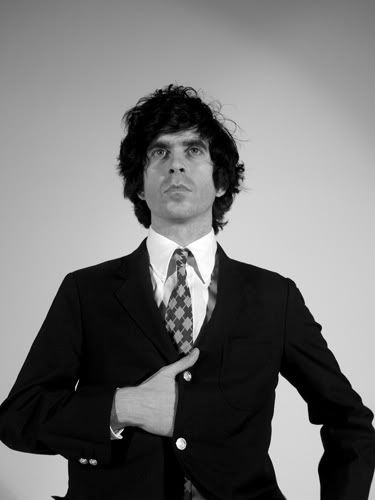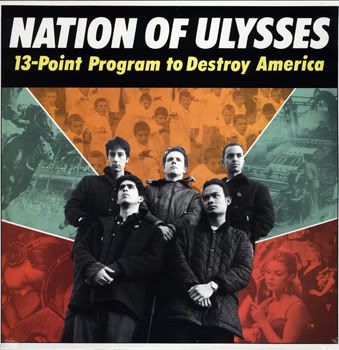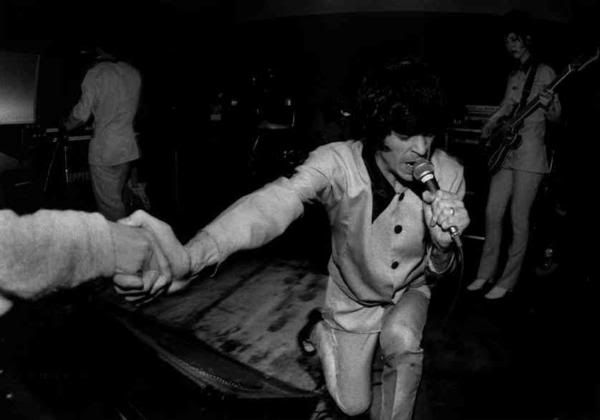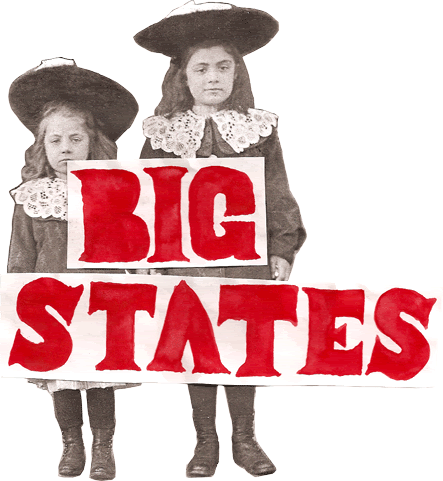Noticing a startling and “complete lack of dissonance between” corporate America and the “countercultural idea,” Frank rails against this “Apollonian” ideology and proclaims that he and his cohort—true dissidents—are “too cynical too young about [its] motives, [its] politics, [its] TV, [its] bad rock’n’roll” for the “mechanical yammering” of the new square America to get him down. Citing independent music as a kind of revolutionary gateway drug and confident that there are “a hundred local scenes alive with enthusiasm and camaraderie and the promise of asylum,” Frank assures the so-called “Culture Trust” that “our generational compass was recalibrated instantly with a glimpse into the working of the machine: We were now outside, our tastes and thoughts automatically condemned by a smug alliance of hippies and business men.” He must have more than a few Ian Svenonius records in his collection.

Taking a similar if less dour tract than Frank, Svenonius, front man for the defunct DC post-punk band Nation of Ulysses (NOU), has—in more than two decades of grinding it out in the punk rock underground—deftly and relentlessly skewered both Frank’s ominous “Culture Trust” and the oft-feverish philippic of neo-Marxist radicals. Nation of Ulysses’ first record—the frenetic, frantic, kinetic 13-Point Program to Destroy America—borrows not only its title (a reference to the Black Panther’s infamous “Ten-Point Program”) from leftist rhetoric, but its entire aesthetic to boot. Mimicking the “samizdat tradition” aesthetically if not practically (regardless of its “underground” nature, there’s nothing clandestine about putting out records), the liner notes to 13-Point Plan… read like a bubblegum version of The Communist Manifesto.

NOU insisted the release wasn’t a record at all but in fact a weapon that must be used to “reveal… [the] abhorred parent culture” and assist in the “violent destruction of the new urban bourgeouise (sic).” A self-described musical Jihad, NOU urges the “true kids” to “wreck society through direct action” and “off the pigs in all their forms.” Sleep is viewed as a “death-like state… which must be obliterated” through massive candy consumption, while adults are merely “those who obscure their folly through a postured roll in the dungheap of yesteryear.” Svenonius and Co. went so far as to include in the liner notes a pictorial guide to removing one’s fingerprints so as to stymie the powers that be.
Simultaneously drawing from pop-culture camp and dense political and social theory, Svenonius has constructed an elaborate mythos at once serious and playful. In “A Kid Who Tells on Another Kid is a Dead Kid,” NOU appropriate the central imagery of the 1979 b-movie Over The Edge, fashioning the film’s goofy take on suburban teenage delinquents into a panicked missive on the necessity of actual violent teen rebellion, one in which the cool kids rule and square kids drool.
A Kid Who Tells On Another Kid is a Dead Kid
Likewise, in “Spectra Sonic Sound” NOU expertly synthesize the affected monster-worship of certain 70s punk bands (Misfits, Cramps, etc.) and the giddy, kiddie love of candy with revolutionary rhetoric, asserting, “Halloween is a potent instrument for revolt, with its tradition of massing and masking the dispossessed.” The lyrics read, in part:
When they raise their voice, they haven’t a choice
But to give it to them in their outstretched hands
Or watch their property go up in flames
It reads like a pro-Union number out of the Wobbly’s Little Red Songbook.
Spectra Sonic Sound
Further evidence of Svenonius’ playful hacking at both the establishment and the underground is found in “Look Out! Soul Is Back,” both a good-time party anthem and NOU’s attempt to wrest music out of corporate hands. Svenonius—like Frank—views “punk as a tool of the ruling class and rock’n’roll a secret tool of capitalism” and has declared that ''since rock was, in subterfuge, capitalism's secret exponent, in victory it no longer has a mission.'' That NOU worked firmly in the post-punk and no-wave idioms is apparently unimportant: “soul music” for NOU means that which hasn’t yet been co-opted by the mainstream “enemy,” the idea being popular music in any genre is of course “inherently soulless.”
Look Out! Soul is Back!
When NOU split in 1992, Svenonius formed a new band called Make-Up to keep up the rallying cry of teen revolt. Allying themselves philosophically with Guy Debord’s Situationist International, the members of Make-Up declared themselves “card-carrying ideologists” and refused to delineate between art and politics. Less explicitly didactic, Make-Up’s songs were essentially devoid of the fiery lyrical rhetoric that marked those by NOU. Instead, Svenonius chose to focus on the more formal aspects of his musical revolution: in keeping with NOU’s proclamation that they would “dress well, as clothing and fashion are the only things which… the kids… have any control over,” the members of Make-Up often wore highly stylized matching stage costumes, evoking a cartoonishly square 60s aesthetic.

Additionally, the group endeavored to appropriate some formal aspects of Gospel music, namely its use of the congregation as a “fifth member.” Make-Up fused this notion of audience participation (call and response, “physical transgression,” etc.) to Marxist ideas of an expanded socialist workforce. Citing the “factory style” production of French yé-yé music in combination with their attempts to establish the audience as participants, they viewed Make-Up as a means to combat what they saw as a “trend (begun by the Beatles) toward self-sufficiency” and “downsizing labor” in rock’n’roll. They termed their new sound “Gospel Yeh-Yeh” and Svenonius described it thusly:
So now, they're going one step further, and that's the DJ culture that's taking over. Electronica is taking over because A: all the rock n' roll is so boring. But also B: because...its just the nature of capitalism. The cheapest thing will prevail. That's why corporations that use Mexican slave labor will always prevail over corporations that use union labor.
My point is: that Gospel Yeh-Yeh utilizes the entire congregation. So it’s kind of going in the inverse of the modern trend toward [utilizing] one person.
And when asked if, in accordance with the NOU’s original ideology he still wanted to destroy America, Svenonius answered simply, “Of course.”
The Make-Up's "formal ideology" is clearly on display in this live performance.
Make-Up disbanded in 1999, and Svenonius’ bands since have been less and less overtly political (though his upcoming record Down With Liberty... Up With Chains, recorded with his new band Chain and The Gang, may reverse this trend), Svenonius himself has continued his satirical and often self-contradictory assault on the underground. In The Psychic Soviet, a book of his essays published in 2006, Svenonius argues that while “Christianity was primarily a tool of the ruling class to convince their impoverished servants to defer pleasure and human rights until a miraculous ‘afterlife,’ rock’n’roll is a capitalist cult” which relies on and “worships the tenets of the market economy: consumerism, newness, and planned obsolescence.” He further suggests that the protagonist in the Rolling Stones’ “Sympathy For the Devil” isn’t Lucifer at all, but “the Marxist idea of dialecticism through history, the inevitable changes that lead us from exploitation… to a Socialist government and Communist society: a process called ‘historical materialism.’” A bit like that titular devil himself, Svenonius continues to evolve his elaborate doctrines.

While satire is hardly a new device, its use as a tool of social criticism is often overlooked and taken less than seriously; outside of television shows like The Simpsons or The Daily Show, most “twenty-nothings” these days see very little in the way of intellectual social parody. With NOU and Make-Up, with his various essays and his current gig as host of Soft Focus, Ian Svenonius has created a lasting, legitimate body of social satire, and has proven once and for all that Johnny can, and must, dissent.

2 comments:
siiiiiick
"NATION OF ULYSSES"
INTERVIEW WITH STADIUMAGAZINE[C]. WORD86.COM. AL.W©
Post a Comment